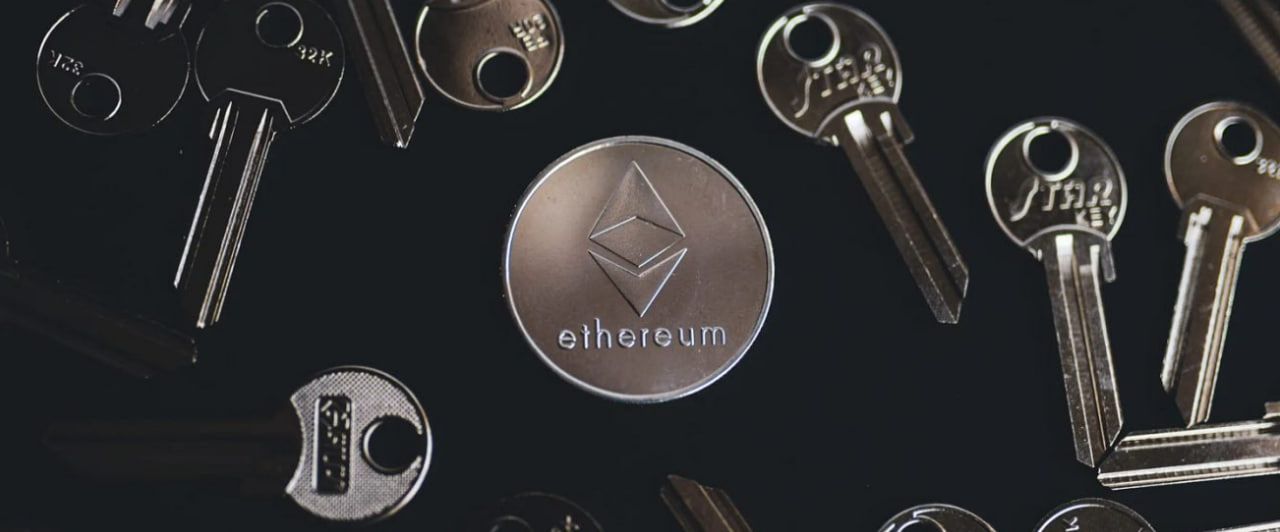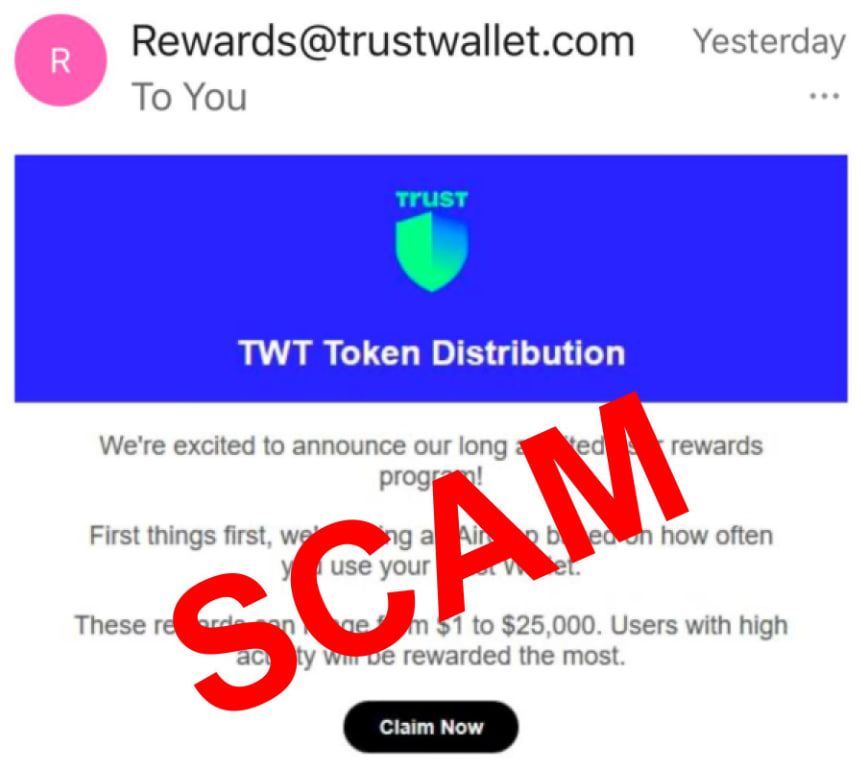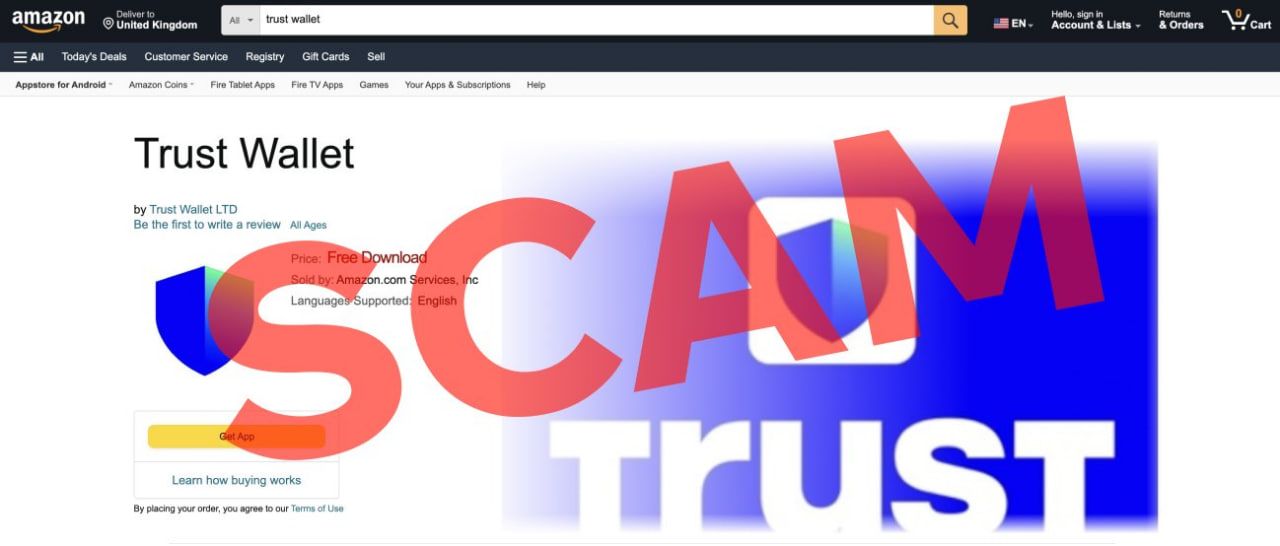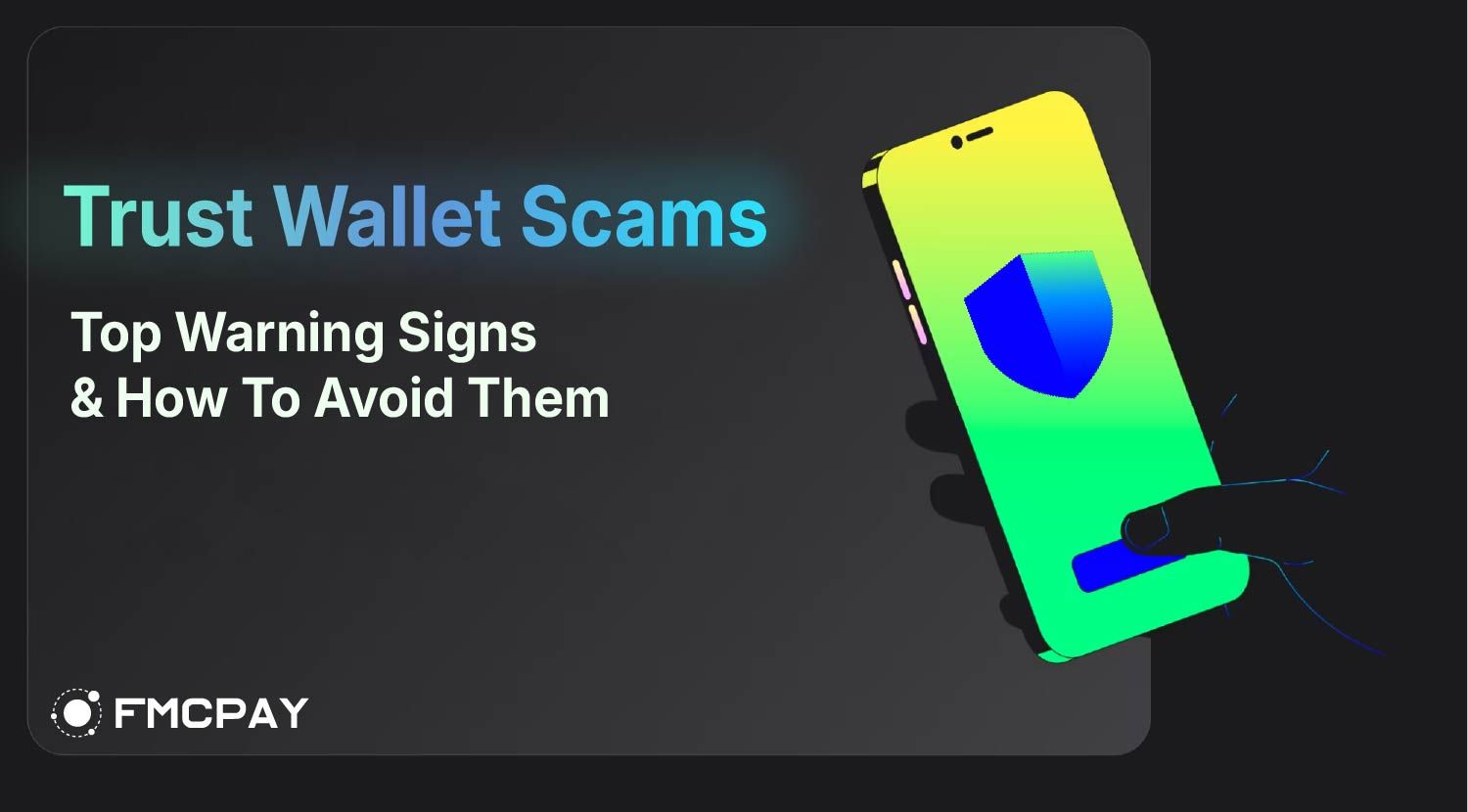As cryptocurrency grows in popularity, popular decentralized crypto wallets like the Trust Wallet has became the target for scammers. Being aware of the favored Trust Wallet scams and understanding how to avoid them is essential to keep your digital assets secure. Here’s a rundown of frequent scams affecting Trust Wallet users, along with key tips to protect yourself.
1. What is the Trust Wallet?
Trust Wallet is a popular mobile cryptocurrency wallet that provides a user-friendly platform for securely storing, managing, and exchanging a vast array of digital assets. The app supports thousands of cryptocurrencies, including major ones like Bitcoin, Ethereum, Tron, as well as many tokens and non-fungible tokens (NFTs).
With the Trust Wallet app, users can access decentralized exchanges (DEXs), and Web3 applications, manage NFTs, and explore blockchain assets—all in a single, integrated environment.
One of the major draws of Trust Wallet is its decentralized structure, meaning users retain complete control over their private keys. Unlike custodial wallets, where a third party may hold keys on behalf of the user, Trust Wallet places this responsibility entirely on its users, enabling direct access to their funds and transactions.
Another reason for Trust Wallet’s popularity is its association with Binance, one of the world’s largest cryptocurrency exchanges, which officially supports and promotes Trust Wallet as its wallet of choice. This connection to Binance boosts Trust Wallet’s credibility and popularity but, at the same time, has made it a target for fraudsters looking to exploit unsuspecting users.

With the rise of cryptocurrency and its adoption by investors of all experience levels, understanding how to navigate and secure a wallet like Trust Wallet has become essential. Unfortunately, Trust Wallet’s popularity and its reputation for security have also attracted scammers. Trust Wallet scams have increased significantly, exploiting users’ trust in the wallet’s name and their potential lack of familiarity with crypto security practices.
2. Why Trust Wallet Scams Are on the Rise
Trust Wallet scams have recently risen to exploit this increased interest in cryptocurrency, particularly among new or less experienced users. Scammers target Trust Wallet because of its large user base, its trusted reputation, and its decentralized nature, which gives them an opportunity to take advantage of users who may be less familiar with secure crypto practices.
The below are factors that contribute to the rise of Trust Wallet scams:
2.1. Growing Popularity of Trust Wallet
The exponential growth of cryptocurrency adoption has brought a surge of new investors who are eager but sometimes inexperienced. Trust Wallet is particularly appealing to these users due to its ease of use and integration with major exchanges, which has made it one of the most downloaded crypto wallets.
Scammers see an opportunity to exploit this new wave of investors, many of whom may not be familiar with the security measures required to avoid Trust Wallet scams.
2.2. Lack of Centralized Oversight
While Trust Wallet’s decentralization offers privacy and autonomy, it also places the burden of security on users. This means that users are fully responsible for their private keys, which are generated and stored only on the user’s device, and never shared or held by Trust Wallet itself.
Losing a private key is like losing the combination to a secure vault—anyone with access to that key has full control over the wallet’s contents, and no central authority can retrieve your key.

2.3. Extremely Hard to Recover Lost Funds
Trust Wallet also keeps user data minimal, so users don’t have to provide significant personal information when setting up an account. While this aligns with the decentralized nature of cryptocurrency, it also means that users cannot rely on a central authority to retrieve funds or halt transactions if they fall victim to a scam. As a result, once funds are stolen in Trust Wallet scams, it is almost impossible to recover them.
2.4. New User Unfamiliarity
New Trust Wallet users often lack knowledge about the security precautions necessary to avoid crypto fraud. Scammers capitalize on this inexperience, using social engineering tactics, phishing schemes, and even fake customer support to lure victims into sharing their private keys or wallet information.
Because of these factors, Trust Wallet users need to be especially cautious and proactive when it comes to security practices. By understanding the risks associated with Trust Wallet scams and recognizing potential red flags, users can better protect their investments and maintain control over their crypto assets.
3. Common Types of Trust Wallet Scams
Trust Wallet app scams are becoming increasingly sophisticated, with scammers finding inventive ways to deceive users. Awareness of these scams along with key red flags is essential for protecting your assets. Here are some of the most prevalent types of Trust Wallet scams and the warning signs to watch out for.
3.1. Phishing Websites
One of the most frequent Trust Wallet scams involves fake phishing websites that closely resemble the official Trust Wallet site. Scammers create nearly identical copies, hoping users will enter their wallet credentials or seed phrases. These sites are typically promoted through ads, emails, or direct messages, making them appear authentic.
Red Flags:
- Lookalike URLs: Always double-check URLs for minor differences or misspellings.
- Suspicious Promotions: Beware of unsolicited emails or messages promoting Trust Wallet “updates” or “offers” that require you to log in.
- Requests for Private Information: Trust Wallet never asks for private keys or seed phrases on their website.
3.2. Fake Apps
Another common type of Trust Wallet scam involves fake applications. These fake ones posing as Trust Wallet app are common on unofficial app stores, or even occasionally on popular app stores.
These apps have the user interface that look like the real Trust Wallet app but are designed to capture users’ private keys, seed phrases, and other credentials. To avoid this scam, only download Trust Wallet from verified sources like the Google Play Store or Apple’s App Store.

Red Flags:
- App Source: you found this app on unusual app stores, or via a download link from unofficial links.
- Low Reviews or Suspicious Comments: Fake apps may have unusual reviews or vague descriptions, which can indicate they aren’t official.
3.3. Watch Wallet Scam
In a watch wallet scam, there will be wallets that seem to have huge balances. But as how it is named, that big number in the wallets can only be used to watch.
Scammers will trick victims into believing they can gain access to these funds by sending a small amount of cryptocurrency to “unlock” the wallet or activate mining features. After depositing, they will find out that the funds cannot be transferred without the private keys—keys only the scammer holds.
Red Flags:
- Suspicious Wallets: You found a wallet with its private keys in a place that anyone can access, like in a group chatbox.
- Too-Good-to-Be-True Balances: Accounts that display unusually high balances are typically scams.
- Pressure to Invest Quickly: Scammers often create urgency to convince users to act, like throw in their wallet in a chat box with many members asking for help.
3.4. Fake Customer Support
Scammers posing as Trust Wallet customer support agents are also prevalent on social media platforms. These fake agents contact users, claiming they need private information to “resolve an issue” or “secure an account.” Trust Wallet’s official support will never ask for sensitive information, so avoid sharing these details with anyone online.
Red Flags:
- Unsolicited Support Messages: Trust Wallet customer support doesn’t reach out individually through social media.
- Requests for Private Keys: No legitimate support representative will ask for private keys or seed phrases.
- External Communication Channels: Be cautious if “support” directs you to communicate outside of the official app or platform.
3.5. Fake Airdrops
Fake airdrop scams are another common type of Trust Wallet scams, where scammers claim users are eligible to receive free tokens or crypto as part of an airdrop event. Victims are directed to connect their wallets to a malicious website or app. Once connected, scammers can access wallet data or prompt the user to transfer funds as a “processing fee.”

Red Flags:
- Processing Fees: Genuine airdrops are free and won’t request fees to participate.
- Unsolicited Messages: Legitimate Trust Wallet promotions won’t reach out randomly over social media or via private messages.
- Requests to Connect Wallet: Avoid connecting your wallet to websites you’re unfamiliar with, as scammers can use this to gain access.
3.6. Address Poisoning
Address poisoning is a deceptive tactic where fraudsters send tiny amounts of crypto to your wallet from an address resembling one you’ve previously interacted with. The aim is to trick you into copying this “poisoned” address for future transactions, sending your funds directly to the scammer’s wallet instead.
Red Flags:
- Unfamiliar Small Transactions: If you receive small transactions from unknown wallets, check the transaction details carefully.
- Wallet Address Variations: : Avoid copying wallet addresses from transaction histories. Instead, use Trust Wallet’s address book to securely save and confirm addresses, or enter the correct address directly.
4. Protecting Yourself from Trust Wallet Scams
Safeguarding your assets against Trust Wallet scams requires staying informed and following best practices for crypto security:
- Only Use Official Websites and Apps: Always download Trust Wallet from the official website or app store to avoid fake apps and phishing websites.
- Double-Check Wallet Addresses: Before sending any funds, thoroughly verify the recipient’s wallet address, and avoid copying addresses from previous transactions to avoid address poisoning.
- Be Skeptical of Free Offers and Airdrops: Avoid airdrops or giveaways requiring you to enter your private information or connect your wallet to a third-party site.
- Enable Security Features: Although Trust Wallet itself doesn’t offer direct 2FA, you can strengthen your wallet’s security by enabling 2FA on your device and setting a strong, unique password.
- Stay Updated: Regularly update your Trust Wallet app to receive the latest security patches and protective features that safeguard against emerging threats.
- Never Share Your Seed Phrase or Private Key: Your seed phrase and private keys should never be shared with anyone, including anyone claiming to be from Trust Wallet support.
5. What to Do if You’ve Been Scammed
If you become a victim of Trust Wallet scams, take action immediately. Transfer any remaining funds to a new, secure wallet, report the scam to Trust Wallet support, and notify relevant authorities, such as local consumer protection agencies.
Staying vigilant and practicing sound security habits can greatly reduce your risk of falling prey to Trust Wallet scams. Always double-check wallet addresses, avoid unsolicited messages, and never disclose your private keys to anyone.
6. Trust Wallet’s Upcoming Security Features
Trust Wallet is continually improving its security features to protect users against evolving threats. By staying updated on the latest security advancements, they will better protect their users against Trust Wallet scams.
Here are some of the upcoming features that have been announced by the Trust Wallet team:
| Upcoming Feature | Description |
| 1. Advanced Biometric Authentication | Incorporates fingerprint and facial recognition to provide increased security for account access. |
| 2. Hardware Wallet Integration | Connects effortlessly with hardware wallets, adding an offline security layer for private key protection. |
| 3. AI-Powered Threat Detection | Uses artificial intelligence to detect and prevent real-time suspicious activities and possible scams. |
Conclusion
Trust Wallet scams are targeting users on various fronts. By knowing the tactics scammers use, implementing security best practices, and staying informed on Trust Wallet’s upcoming features, you can minimize your risk. Remember, safeguarding your crypto assets is an ongoing effort that relies on caution, verification, and awareness.
Stay tuned with crypto insights from FMCPAY for more in-depth information and the latest trends in the crypto world!

